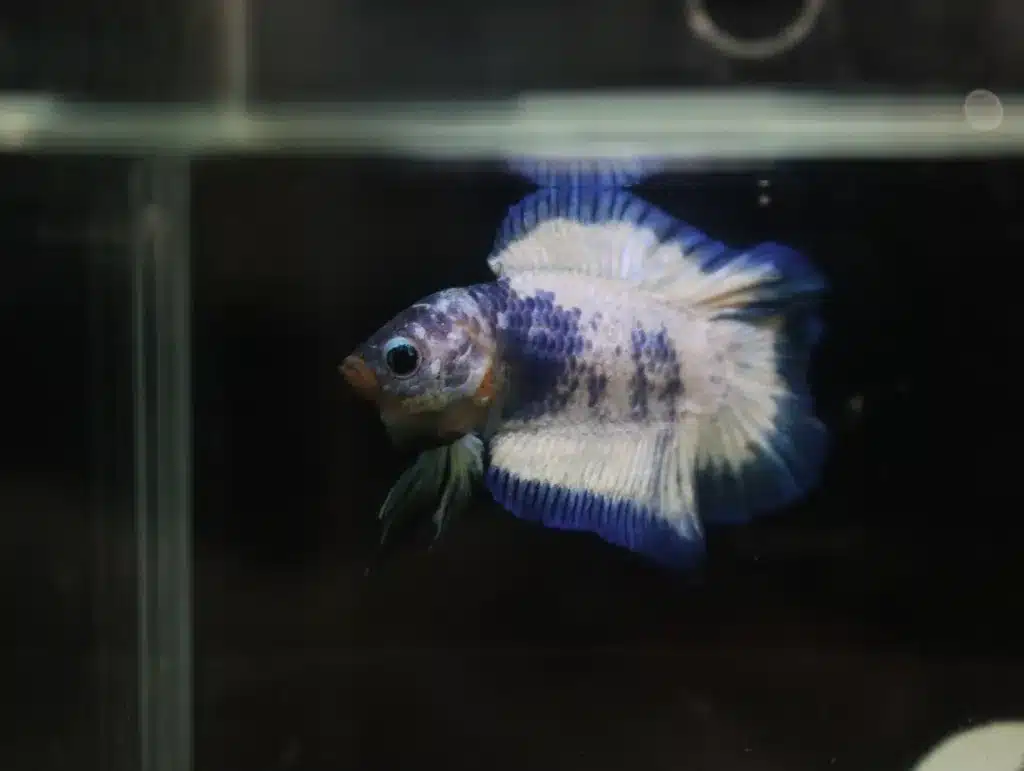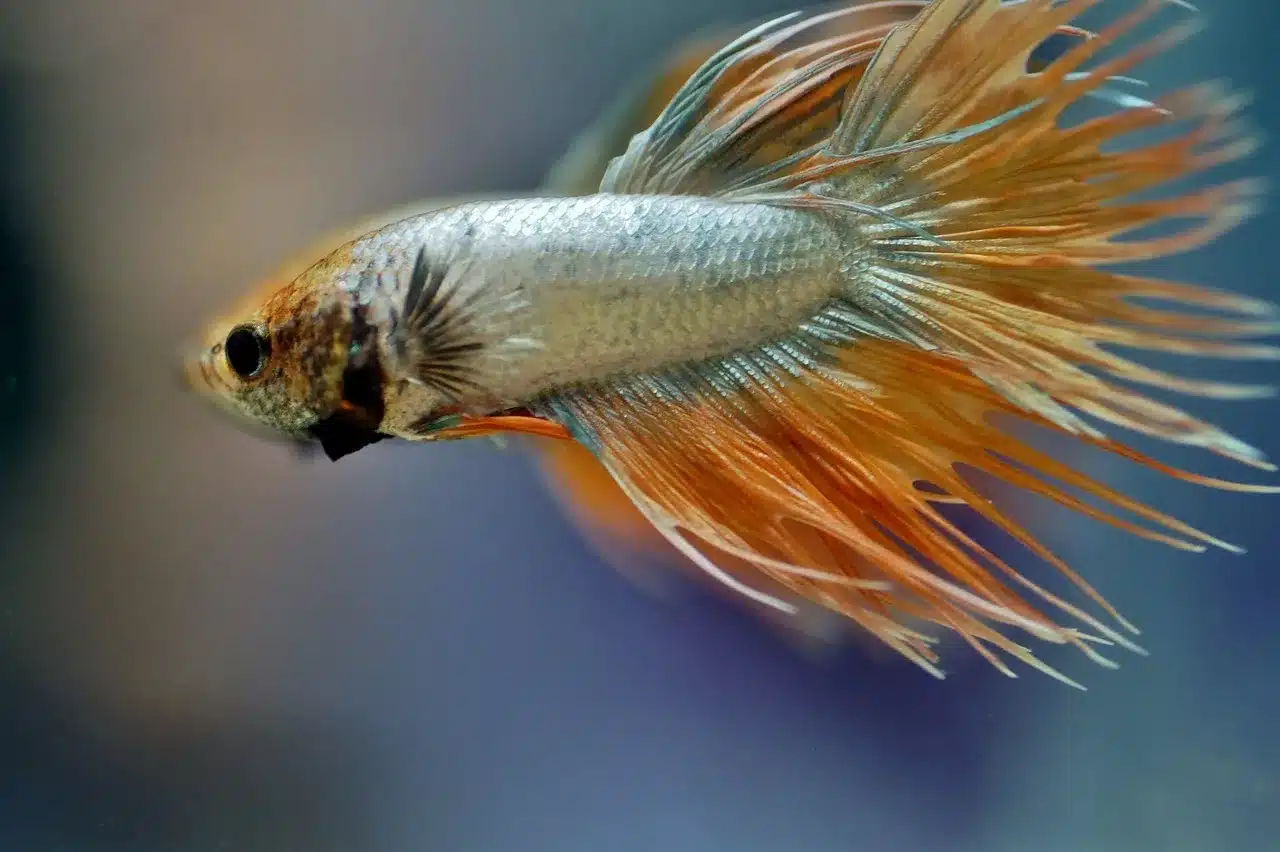You’re not alone if you’ve ever wondered how long can a betta fish live without a heater. As someone who’s kept these colorful little warriors, I find it a bit of a puzzle to figure out what makes them happiest.
Betta fish are tropical creatures, and they really prefer warm water. But hey, life happens, and sometimes, a heater might not be in the cards right away.
So, let’s explore what happens if your betta’s tank gets chilly and how you can manage without a heater. Stick around, and let’s figure this out together!
Can Betta Fish Survive Without a Heater?
Indeed, betta fish can survive without a heater, but it’s far from ideal. These charming creatures originate from warm tropical waters and thrive in temperatures between 76°F and 82°F (24°C to 28°C). If the water dips below this range, they may experience stress and become more susceptible to illnesses. While they can endure cooler temperatures for a while, they truly flourish in warmth. Therefore, maintaining a heated environment is crucial for your betta’s happiness and health.
How Long Can a Betta Fish Live Without a Heater?
It’s tough to say exactly, but a betta’s lifespan could be shortened without a heater. While bettas are resilient and can survive in temperatures slightly cooler than their ideal range for a while, consistently cold water can lead to a shortened lifespan.
Some betta owners have kept their fish alive for months or over a year without a heater, but this is far from ideal and not recommended. In colder water, bettas get more stressed, their immune system weakens, and they’re more likely to get sick. All of these factors can really cut short their life expectancy.
Under optimal conditions, a healthy betta can live for about 3 to 5 years. However, bettas might not reach their full lifespan without a heater and in cold water. They often become lethargic, eat less, and are more prone to health issues, which can significantly affect their vitality and longevity.

What Happens if You Keep Betta in Cold Water?
Keeping a betta fish in cold water can adversely affect its health and behavior. Here’s what typically happens if a betta is kept in an environment cooler than its ideal tropical water temperature.
Slowed Metabolism
Cold water really slows down a betta’s metabolism. This happens naturally as the fish tries to save energy when conditions aren’t great. While this might sound like a handy survival mechanism, it has drawbacks. A slower metabolism means the betta is less active and may exhibit reduced swimming. It also affects the betta’s digestive system, decreasing appetite and potentially causing digestive issues.
Immune System Suppression
One of the more critical consequences of keeping betta fish in cold water is suppressing their immune system. A robust immune response depends on specific environmental conditions; cold water isn’t conducive to this. A compromised immune system makes bettas more susceptible to infections and diseases, such as fin rot, ich, or fungal infections, which are far more challenging to manage in a weakened fish.
Behavioral Changes
Bettas are known for their vibrant personalities and interactive behaviors. In cold water, however, they become lethargic and less responsive. They may spend more time near the bottom of the tank, show little interest in food, or interact less when you approach the tank. This behavior change not only indicates that the betta is uncomfortable, but it could also mean their health is getting worse.
Physical Stress
Chronic exposure to cold water can lead to physical stress, evident through physical symptoms such as clamped fins, where the fins are held unusually close to the body rather than fanned out beautifully as they should be. You might also notice their colors becoming dull, a sign of stress or poor health.
Long-term Health Impacts
Beyond the immediate effects, long-term exposure to inappropriate water temperatures can shorten a betta’s lifespan. Instead of the potential 3 to 5 years in optimal conditions, a betta kept in cold water may have a reduced lifespan due to ongoing health challenges and a lower overall quality of life.
What Should You Do If You Don’t Have a Heater?
Suppose you find yourself without a heater for your betta fish tank. In that case, there are several strategies you can employ to help manage the water temperature and ensure your betta remains as comfortable and healthy as possible.
- Choose a Warm Location for the Tank
Position the tank in a part of your home that naturally stays warmer. Avoid areas near windows that might be drafty or subject to temperature fluctuations due to outside weather changes. Instead, opt for an interior room that maintains a consistent temperature.
- Insulate Your Tank
Use a tank cover or hood to help contain the heat that naturally accumulates in the water. You can also insulate the sides of the tank using foam board or even wrapping it with towels. This helps to minimize heat loss, especially during colder months.
- Use an Aquarium Lamp
Consider using an incandescent bulb in your aquarium lamp since these bulbs give off quite a bit of heat. But be careful with this approach, as it can change the temperature too quickly if you don’t keep a close eye on it. LED lights save more energy, but they don’t produce much heat.
- Monitor Water Temperature Regularly
Use a reliable aquarium thermometer to monitor the water temperature closely. Frequent monitoring will help you understand the temperature trends in your tank and adjust your heating strategy accordingly.
- Increase Room Temperature
Increase the temperature of the room where the tank is located. This can be done using a room heater. Be mindful of the safety aspects and ensure that any room heating method used does not adversely affect the overall environment and is safe for use around pets.
- Use a Heat Mat
Place a heat mat underneath or to the side of the aquarium. Ensure it is designed for aquarium use or at least safe for this purpose. Using a thermostat with the heat mat will help avoid overheating the water.
- Temporary Water Warming
In emergencies, you can warm water on the stove or microwave and add it to the tank to raise the temperature gradually. Mix this water thoroughly with the existing tank water to avoid hot spots that could harm your fish.
Conclusion
Ensuring your betta fish lives at the right temperature is crucial for its health and well-being. Although bettas can survive temporarily in cooler water, this isn’t ideal and can lead to health problems and a shortened lifespan. If you’re without a heater, temporary measures like positioning the tank in a warm area, insulating it, or using safe heat sources can help. However, these are short-term solutions. Investing in a reliable aquarium heater is essential for your betta’s long-term health. A heater will help maintain the warm environment that bettas need to thrive, giving your fish peace of mind and a happier, healthier life.
